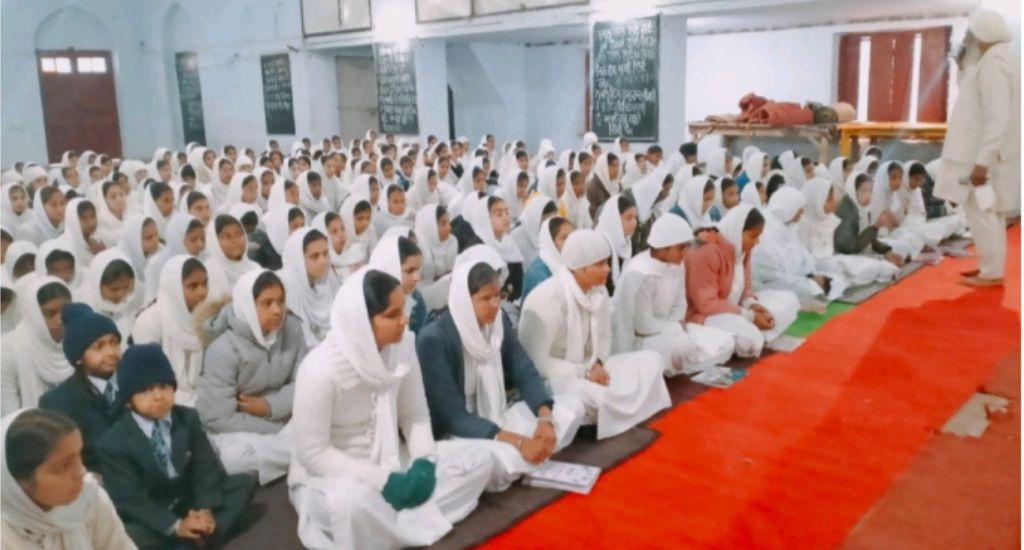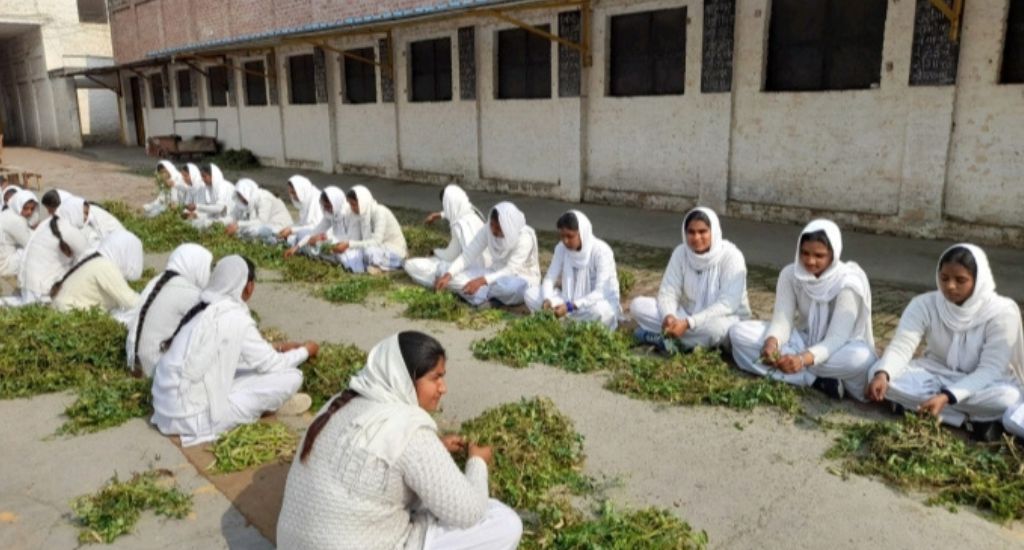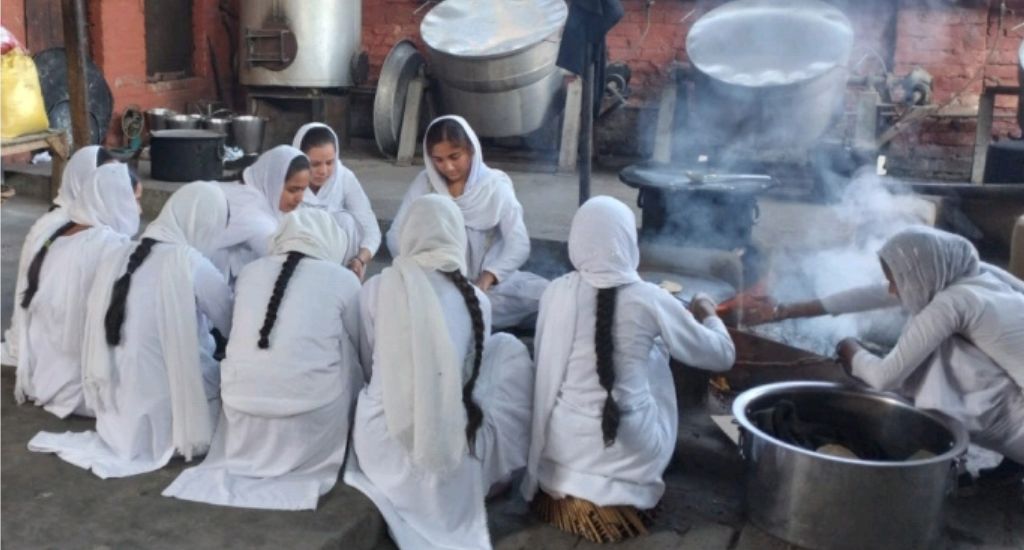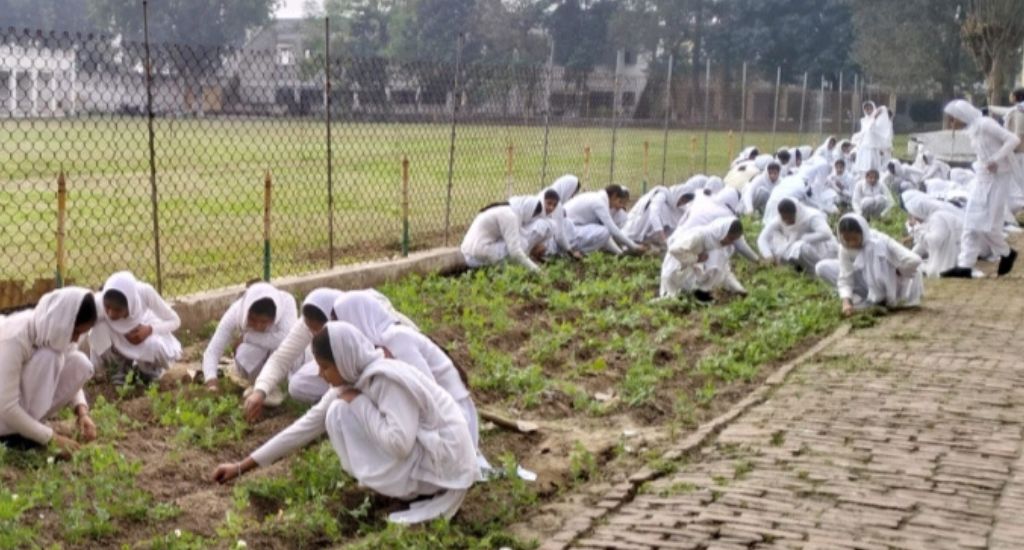
A Punjab college for girls where every student is a teacher
Baba Aya Singh Riarki College in Punjab’s Gurdaspur district stands as a beacon of empowerment, challenging stereotypes and showcasing how girls are capable of achieving remarkable feats.

Baba Aya Singh Riarki College in Punjab’s Gurdaspur district stands as a beacon of empowerment, challenging stereotypes and showcasing how girls are capable of achieving remarkable feats.
An institution for girls, born from the vision of a dedicated social worker, has emerged as an exception in a world where education often wears a price tag. With more than 4,000 students enrolled from primary school to BA and BSc courses, Baba Aya Singh Riarki College in Tughalwala village of Punjab’s Gurdaspur district defies conventional educational norms and stands tall as a symbol of self-governance and empowerment of girls.
Here, school and college coexist seamlessly, with exceptional discipline reigning over classrooms. The teaching dynamics take an unconventional turn in the higher classes — more than 2,000 students from class 10 to graduation courses are guided by a mere five teachers.

The responsibility of teaching is a shared venture where senior students, particularly the high achievers, take the lead through the “each one, teach one” philosophy, not only reducing costs but instilling a profound sense of responsibility and confidence in these “student lecturers”.
The spirit of sharing knowledge resonates through the corridors. Students form pairs, where one aids the other in understanding complex subjects. Gurjeet Kaur, who scored 75 percent, mentors Kuldeep Kaur, who scored 43 percent, exemplifying the collaborative spirit fostered in this unique ecosystem.
“We study in groups. About 10 students sit together in a group and discuss subjects and solve problems. It increases our knowledge also,” said Gurjeet, explaining the learning approach. The ethos is clear: leadership and self-reliance.
The roots of this institution in the Riarki belt of Gurdaspur trace back to 1923 when a primary school laid its foundation. Founded as a putri pathshala (girls’ school) by social worker Baba Aya Singh, the establishment later expanded to the SKD High School in 1939. Today, under the affiliation of the Punjab School Education Board, the institution stands as an embodiment of alternative education methods.
Also Read: Punjab school rises like a phoenix from ashes of neglect

Swaran Singh Virk, the institution’s principal since 1975, envisioned a free college that materialised with community support. The college falls under the jurisdiction of Guru Nanak Dev University (GNDU), but is not affiliated to it because of its unorthodox approach, with students appearing privately for their examinations.
The institute, dependent on fees, balances its expenses meticulously.
“The college only charges for the ‘real expenditure’ incurred on students,” said Virk. Adhering to this philosophy, the annual fee is Rs 800 for day scholars and Rs 5,000 for hostellers.
Democracy echoes through every decision-making process. An 11-member student committee, headed by a secretary, oversees admissions, exams and fee structures. The admission committee, managed by girls, rejects any interference or recommendations, maintaining the purity of the process and upholding a commitment to fairness.

The girls exercise the right to fine even the principal for rule violations, exemplifying the commitment to self-governance. They manage everything — from college administration to cooking. The college relies on only two clerks to handle its accounts, with the rest of the tasks being undertaken by specially trained students dedicated to these responsibilities.
Discipline is the cornerstone of this college, often referred to as the “Shanti Niketan of Punjab”. Here, students don’t just learn. They live and practise their education in daily life. Girls rotate responsibilities, including food preparation, ensuring a democratic choice in meals.
Life at the institution is a harmonious blend of the generic curriculum and life skills infused with values, culture and tradition. The girls blend classroom learning with practical responsibilities such as kitchen duties and gatekeeping. Music classes and religious studies punctuate their routine, while skills like stitching, sewing, cooking, first-aid and decoration are woven into their curriculum.
Also Read: Punjab’s daughters revive its cotton weaving tradition
The institution prepares students not just for academic challenges but also for competitive exams like civil services. Girls supervise examinations independently. The college has a unique reward system — Rs 21,000 for anyone detecting copying during exams, yet no claim has been made. This ethos has led to minimal staff deployment from external authorities during exams.

Beyond academic achievements, the students actively engage in community service, campaigning against social issues like female foeticide. The college, equipped with solar power, a dairy farm and a biogas plant, emphasises environmental consciousness, with girls voluntarily planting saplings each year. The school stands as a testament to the idea that education is not merely about what is taught. It’s about what is practised and lived every day.
The lead image at the top shows a group of girl students studying together at Baba Aya Singh Riarki College in Tughalwala village of Punjab’s Gurdaspur district. (Photo by Kiranjit Kaur Jhunir)
Kiranjit Kaur is a Village Square Fellow ’23. She works as an independent journalist in Punjab.